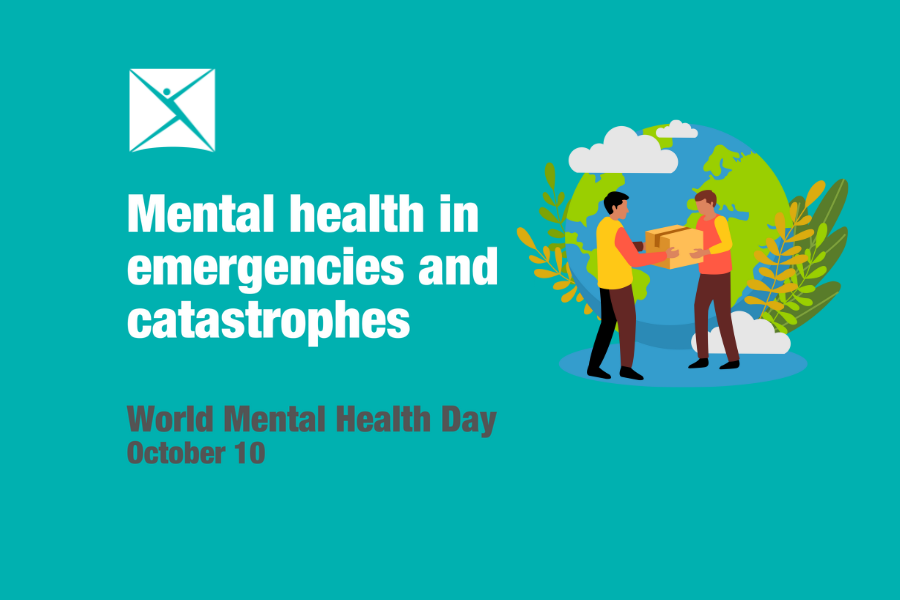Community is essential to supporting mental health after catastrophes and emergencies
Climate change is happening, and it’s an increasing risk to mental health globally. One survey conducted in 2023 found that 75% of Canadians worry about climate change, particularly people aged 18-34.1 But anxiety about a changing climate is only part of the story. Even the World Health Organization is urging countries to include mental health in climate change plans.2
With a changing climate comes more extreme and frequent weather events. Year after year, wildfires affect communities across Canada. Flooding, tornadoes and other natural disasters are increasing in frequency and severity.3 Natural disasters impact mental health because they affect people’s socioeconomic situations. People must evacuate their homes or see them destroyed. They may experience an interruption or loss of employment. Loss of income can lead to housing and food insecurity. All of these impacts can lead to psychological distress during and long after an event.
Natural disasters can lead to or worsen mental illnesses such as depression, anxiety and post-traumatic stress disorder (PTSD).4 And climate impacts to mental health are widening gaps in health equity.5 Psychological impacts from natural disasters are worse for low-income households.6,7 Impacts are also worse for people with preexisting mental health conditions.7 Community belonging is also connected to mental health following a disaster or emergency. People who lack a sense of belonging are among the most at risk when it comes to mental health.7
Community is the answer
Strong communities are essential to good mental health. Community-based mental health organizations, like CMHA, provide community-tailored services in times of need. They are there before, during, and long after disasters strike, supporting communities as they rebuild and recover.
In fact, community-based mental health organizations are always there, emergency or not, to help people build proactive coping skills and improve well-being through mental health promotion initiatives. These initiatives are most effective when woven into all aspects of our life: home, work, and play. Mental health promotion is a collective effort involving governments, health organizations, households, schools, workplaces, and informal community networks (e.g., seniors’ associations and cultural associations). These knowledge and skill-building initiatives help individuals respond when disasters strike, laying the ground for long-term recovery.
When wildfires forced people from their homes this summer, CMHA Manitoba and Winnipeg partnered with the Canadian Red Cross and community agencies to support evacuees. Our team connected with people staying in hotels, checking in, listening, and offering care to help them feel seen and connected in the middle of so much uncertainty. This experience reminded us how powerful community can be and how strong, caring connections support mental health before, during, and after a crisis.
Things you can do to help yourself and others during an emergency
We all do better when we can support each other through challenges. You can help yourself and others during and after an emergency or natural disaster:
- Take care of the basics: make sure you’re eating well and getting enough sleep.
- Give and accept help: even just talking with someone is a form of help.
- Check in on others: reach out to people who are alone or may need extra support.
- Build or restore routines: basic daily routines help create a sense of control.
- Reach out to your local community organizations to offer help and learn how you can support emergency response plans.
2 Climate action must include mental health | World Health Organization (who.int)
3 Fact sheet: Climate change and storms (climateinstitute.ca)
4 Impact of natural disasters on mental health: Evidence and implications (mdpi.com)
5 Health of Canadians in a changing climate: Mental health and well-being | Canada in a Changing Climate (changingclimate.ca) and The clinical implications of climate change for mental health | Nature (nature.com)

